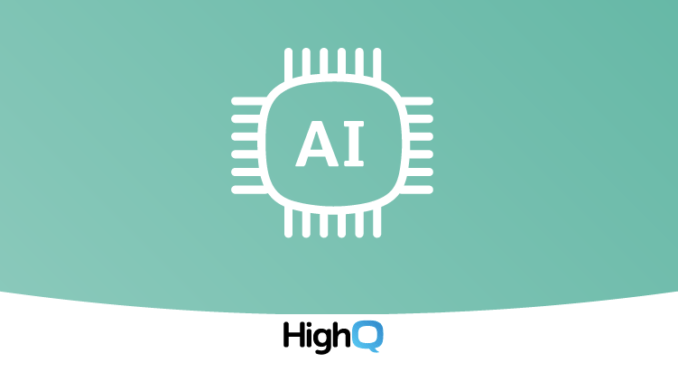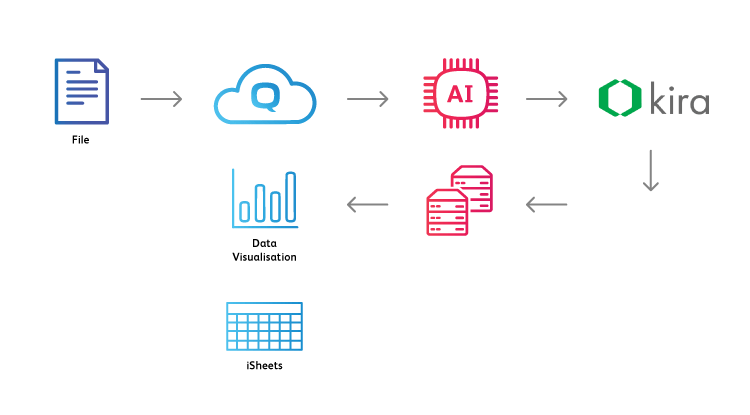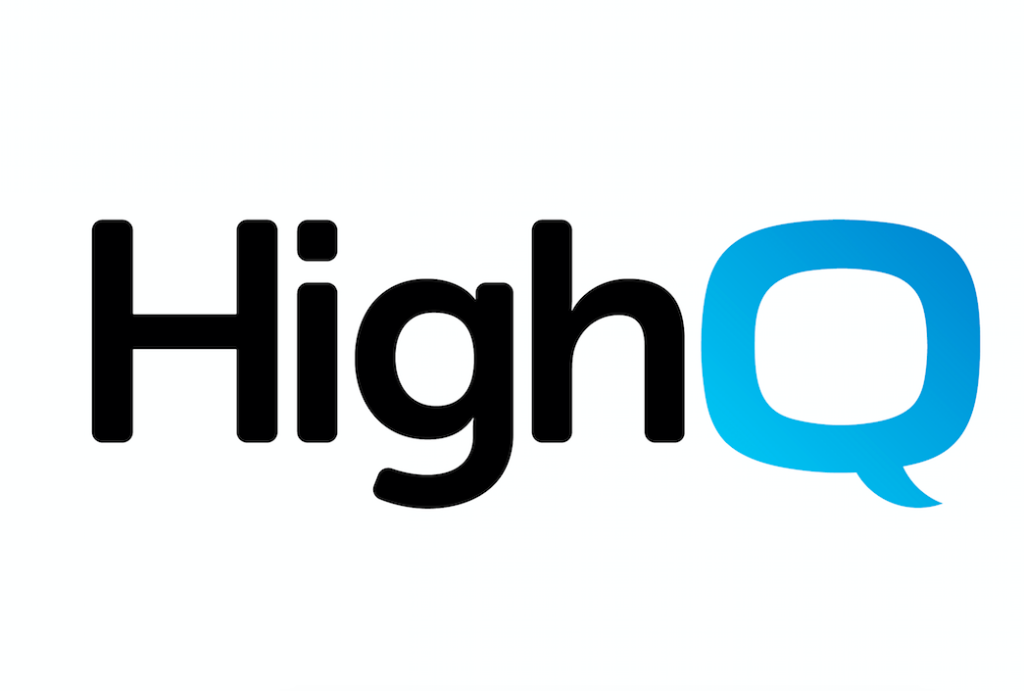
More and More Law Firms are Turning to More than One AI Solution
By Brett Chalmers, Senior Product Marketing Manager, HighQ
When the topic of artificial intelligence (AI) in the legal industry surfaced a handful of years ago, conceptual and visionary topics dominated the discussion. Questions like ‘What will AI mean to human practitioners?’ and ‘What areas could AI impact the most?’ drove the narrative of articles, studies and projections.
Fast-forward to 2016, and ‘The rise of AI’ topped everyone’s technology prediction list. Rightfully so, because pioneering companies like Kira Systems were emerging with real solutions that deliver real results like the ability to ‘complete M&A due diligence contract review faster and more accurately’ using machine-learning algorithms.
Since then, firms, corporate legal departments and legal service providers have been lining up to get their hands on the right AI platform. And now there are more choices than ever. In typical supply-demand fashion, the number of legal technology AI companies has skyrocketed by 65 percent in just the past year, according to a LawGeex report.
The proliferation of AI across the industry begs the question: ‘So what’s next?’

The future already is being tried and tested in some of the most innovative legal environments says Stuart Barr, chief product and strategy officer at HighQ.
‘It has become clear that no one is going to build a single AI engine that does everything firms need it to do,’ says Barr. ‘We are seeing leading firms now turning to multiple AI platforms to solve different problems.’
That same LawGeex report bolsters Barr’s observation, as it maps out their list of 66 AI vendors based on 11 different areas of expertise, such as contract management, legal analytics, eDiscovery, prediction technology and so on. Not one solution crossed over into multiple categories.
While this rapid pace of development and specialisation is positive, it does introduce a significant, predictable problem—multiple platforms that operate independently. Different requirements, different user interfaces, different capabilities, different strengths and different weaknesses can reduce or cancel out efficiency gains that AI and other technologies generate.
‘That’s the fundamental issue, if you like, that needs to be solved,’ says Barr. ‘Firms can’t afford to have data trapped in disparate AI platforms, requiring significant manual effort to make the most of it.’
Recognising the practical challenges firms face, Barr and his team developed a solution, AI Hub.
AI Hub leverages the capabilities of multiple AI engines and puts them to use within HighQ’s intelligent work platform, which a majority of the world’s leading firms use to initiate and manage their daily routines.
‘The idea was to seamlessly integrate AI engines into the processes, workflows and solutions within the HighQ platform so that users don’t have to be experts in five different AI platforms, for example,’ said Barr. ‘If you want to do some analysis around leases, then great. Use the Leverton engine. If you want to do some M&A work and look at some contracts, great. Use Kira.
‘What the AI Hub does is allow you to leverage the intelligence from multiple AI engines through one platform and store the output in one place, the AI Hub itself,’ says Barr. ‘So you get this enriched data set, which is an aggregate of the insight gained from multiple, specialist AI engines. And from there, you can use it in different ways. Either to visualise document analysis on a dashboard or drive different workflows and processes – such as document reviews, due diligence or contract management, for example.’

Not surprisingly, analysing contracts and performing due diligence to identify red-flag issues as part of a merger, acquisition or other deal process is surfacing as a key use case for this unified, multi-platform approach to AI. Seeing a targeted need in this area and other document-intensive processes, HighQ built its own, complementary AI engine that feeds into the AI Hub and provides intelligence about documents at the front end of a project.
‘With big review or due diligence processes, you want to know what you’re dealing with before you put your project team together or maybe even estimate how long it’s going to take or cost,’ says Barr. ‘The HighQ AI engine will look at the volume of documents, classify them by type, and tell you what languages they’re in, what currencies are contained within them, which jurisdictions they’re based in, which locations the parties are in, and so on.’

With every week that passes, industry innovators are imagining more and more benefits of AI. The possibilities for augmenting human capability seem virtually endless. But whether AI delivers on its potential likely will rest on the pragmatic realisation that legal technologies must work together.
‘What’s interesting is that at the moment, the most value comes from using AI in the context of a process or project – not from the AI in isolation,’ says Barr. ‘We’re really focused on the process angle – productivity, efficiency and automation. Yes, we have some intelligence of our own, but we know we’re never going to be able to replicate what Kira does, what Leverton does, what Luminance does.’
‘Conversely, AI engines are going to have a tough time trying to develop the collaboration, project management, task management, workflow and other practical capabilities that platforms like ours have been delivering for years. Through integration with a destination system like HighQ that already has the scale and adoption, they can become a core part of an ecosystem that truly transforms the legal industry,’ he says.
Barr has spoken with many of HighQ’s clients recently who have expressed a desire to reach out to AI vendors, but say that they’re only going to consider platforms that buy into this integrated mindset.
‘From a client’s perspective, you can understand why,’ says Barr. ‘They don’t want to have to deal with multiple systems and multiple UIs to be productive. And they certainly don’t want to expose all of that complication to clients or lawyers. They just expect stuff to happen.’
This is a Sponsored Thought Leadership article by Legal Data Collaboration Company, HighQ.
You can learn more about the AI Hub here.
2 Trackbacks / Pingbacks
Comments are closed.